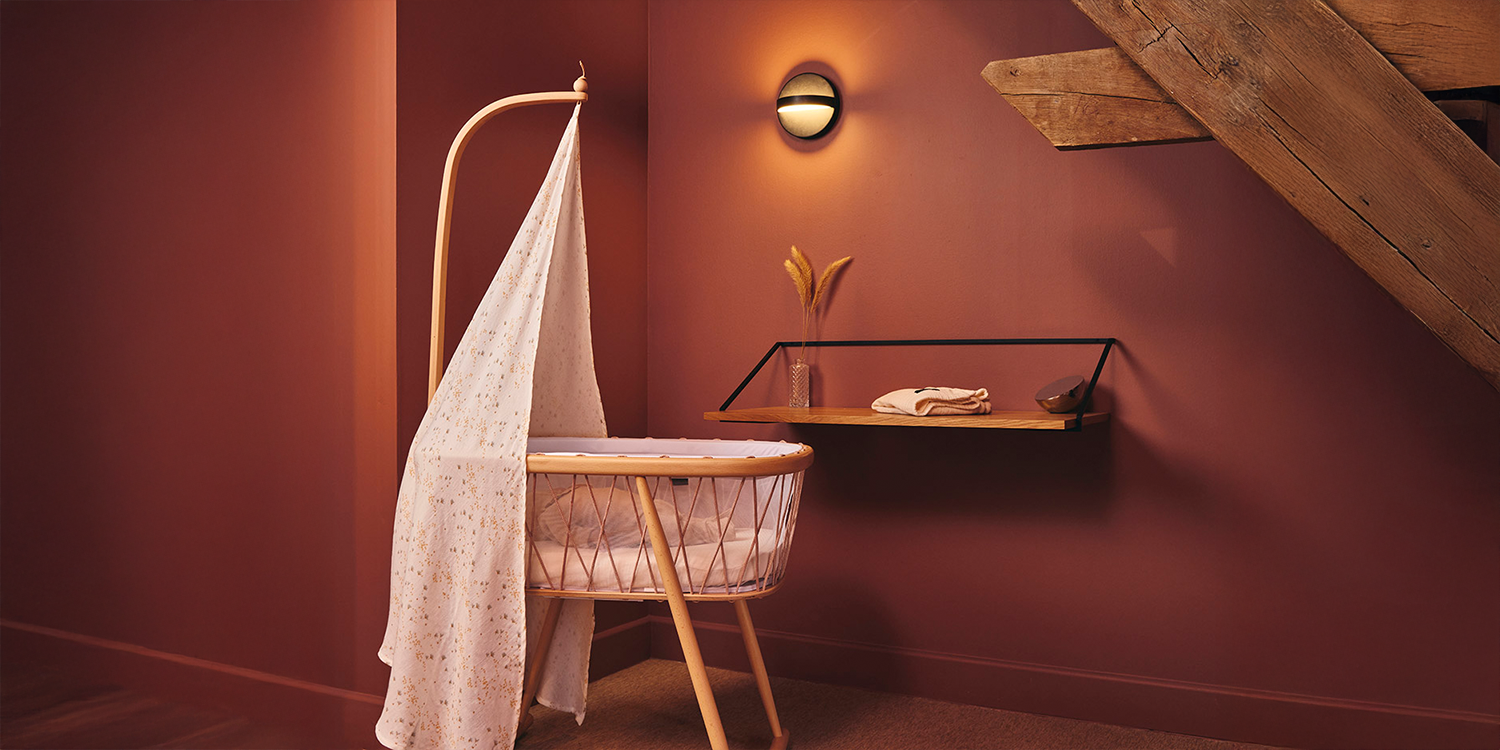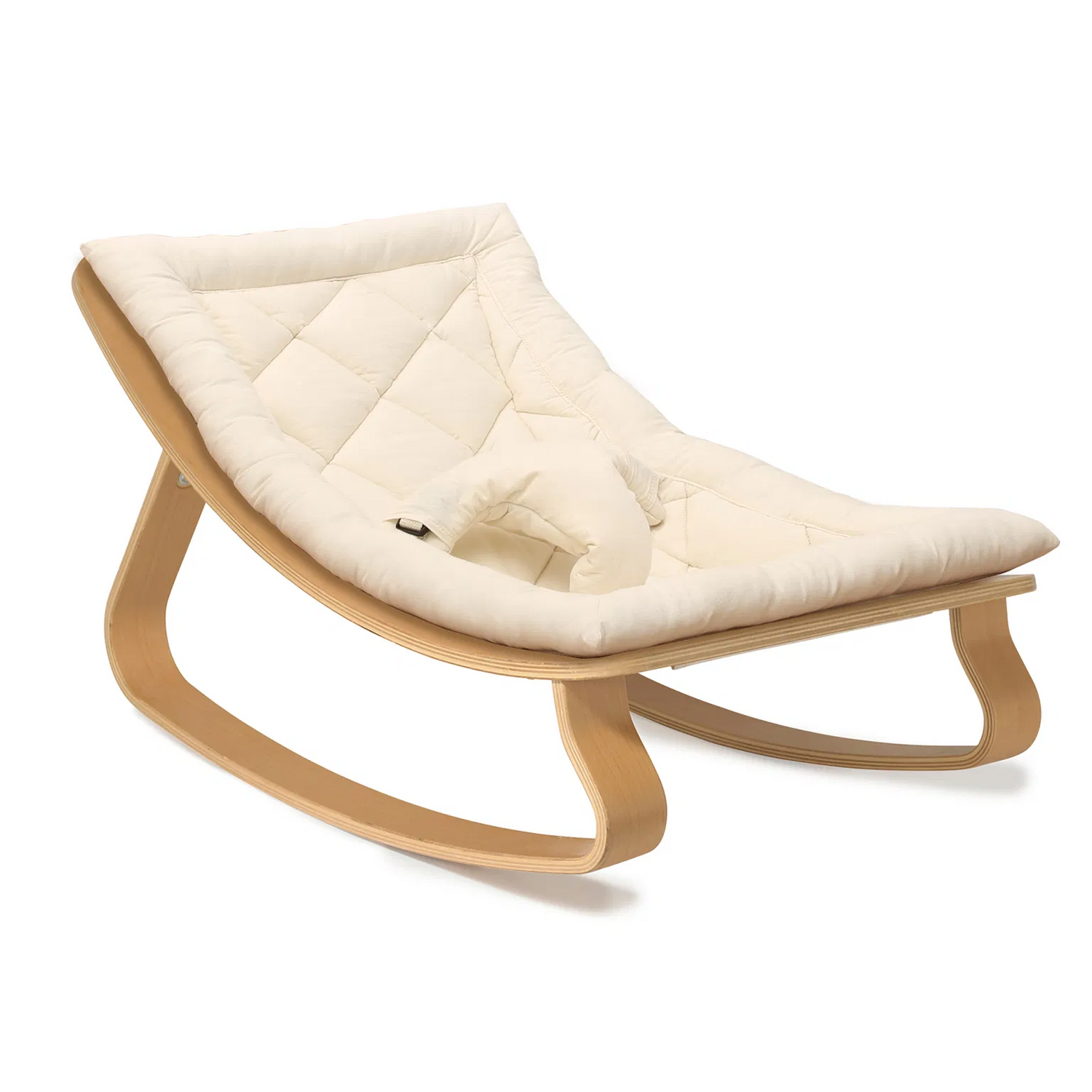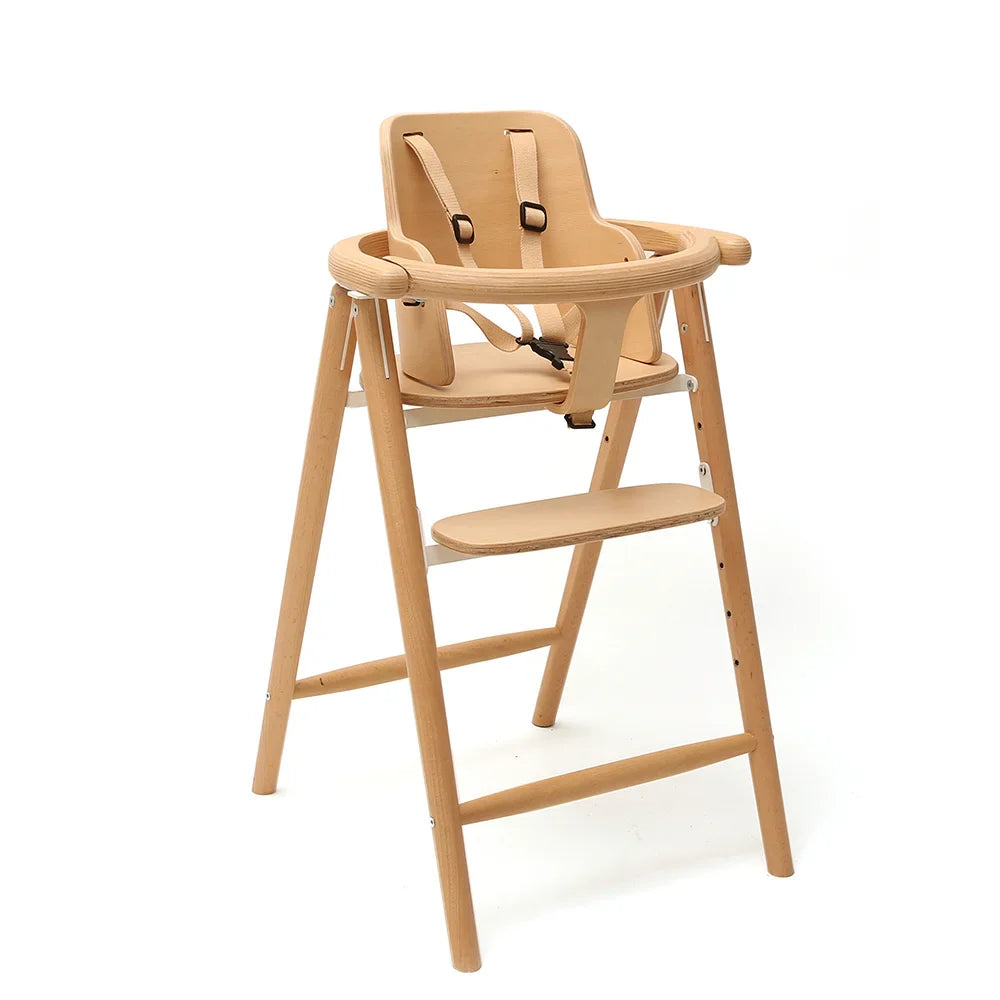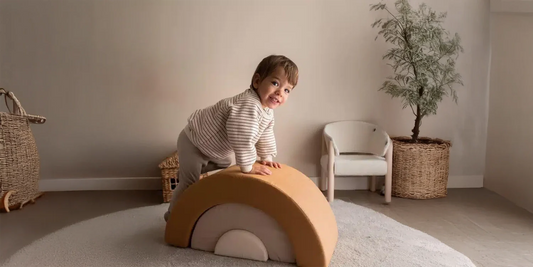Sleep: what should I do if my baby wakes up at night?

What is a full night's sleep for a baby?
Contrary to what you might think, a full night's sleep for a toddler does not correspond to 7 or 8 hours of uninterrupted sleep, as it does for an adult. For an infant, a “full night's sleep” is defined as 5 to 6 hours of uninterrupted sleep. This may seem a short time, but for a baby who, in his first months, wakes up very frequently to be fed or changed, 5 to 6 hours is already quite an achievement. Infant sleep rhythms are very different from those of adults. Cycles are shorter, around 50 minutes, with more frequent light sleep phases. So, even if your baby starts to sleep a little longer, he or she may wake up several times during the night.
When should you be concerned?
While the majority of babies start to sleep better around 6 months, it's perfectly normal for there to be fluctuations. However, there are certain signs that should prompt parents to consult a pediatrician or sleep specialist.
Here are a few things to look out for:
- If your baby wakes up constantly for no apparent reason (he or she is well nourished, has no fever, no illness and a soothing environment).
- If, despite your efforts to establish a routine or a favorable environment, your baby is unable to sleep through the night from 9 or 12 months onwards.
- If the disturbed nights are accompanied by difficulty falling asleep, severe irritability or behavioral problems during the day.
In such cases, a paediatrician can help you identify the causes of frequent waking and suggest appropriate solutions. However, it's essential not to feel guilty: every baby has his or her own rhythm, and this is not a reflection of your parenting skills. So repeat after us “I'm a good parent”.
Helping your baby to sleep through the night is often a top priority for young parents. The famous expression “sleeping through the night” is synonymous with an important milestone in a baby's development, but when this long-awaited moment is delayed or interrupted, it can become a source of worry. What to do if baby wakes up at night? Let's decipher what “sleeping through the night” really means, at what age it can be expected, when to worry and, above all, how to help your child sleep better.
At what age does a baby start sleeping through the night?
While there's no universal rule for the age at which a baby starts to sleep through the night, let's look at the science and studies.
Let's look at the science and studies.
- Between 3 and 6 months: Half of all babies are able to sleep for at least 5 to 6 consecutive hours.
- From 6 months: a 2018 study published in Pediatrics showed that around 38% of babies sleep 8 hours in a row at night. This means that 57% of babies at this age still wake up at least once during the night.
- From 12 months: it is estimated that 72% of babies sleep through the night… with variations. Factors such as diet, temperament and external events (teething, illness) can influence sleep. This leaves 28% of babies who have difficulty sleeping through the night.
As you can see, full nights are not automatic for babies. It's important to remember that every child has his or her own developmental rhythm. While some sleep for several hours at a stretch from the age of 3 months, others may still be waking up at night at 8 or 9 months, or even later. This doesn't mean there's anything wrong.

Practical tips to help your baby fall back asleep more easily
If your baby isn't sleeping through the night yet, a few simple adjustments can make a big difference to his sleep. Here are some practical tips to improve your child's nights - and, by extension, your own:
Create a bedtime routine
Babies, like older children, are sensitive to rituals. Repeat the same routine every night, preferably at the same time, with a fixed bedtime. A soothing bath, a clean diaper, a short story, gentle cuddles and a calm environment help your baby understand that bedtime is approaching. The more regular and repeated the routine, the more your child will associate it with sleep.
Creating an environment conducive to sleep
Choosing the right crib is essential. It must be comfortable, age-appropriate and set in a soothing environment. Up to the age of 4-6 months, opt for a crib or bassinet. Keep the room at a pleasant temperature (between 18 and 20°C), and create a darkness conducive to sleep that will help your child distinguish between day and night. Likewise, no screens before bedtime. Light disrupts the sleep cycle (and adults too, by the way…).
Identifying signs of fatigue
A point emphasized by many specialists: it's important to spot the signs of sleepiness. A tired baby shows that it's time to go to sleep: he rubs his eyes, yawns and grumbles. If you observe these signs, put him to bed quickly, before he becomes too tired, as this can make falling asleep more difficult.
What to do if baby wakes up at night?
We've selected a few ideas to try out at home if your baby wakes up at night. First of all, build up your self-confidence. Many parents are afraid of creating bad habits: “Let him cry, you'll get him used to it…” says Auntie Janine. The truth is, by responding to his needs, you're consolidating his emotional security. The very security that will enable him to be more independent later on. Trust your instincts and don't feel guilty about cuddling or reassuring.
Find the cause of waking
Understand why your baby has woken up. Is he hungry, too hot, in pain, or does he need to be changed? It's also worth noting that, around 4 months, babies sometimes experience a regression in sleep, linked to a natural transition to a new cycle.
Finally, after a certain age (around 18 months), babies no longer physiologically need to feed at night. In this case, reassure him with words. Another important question: is waking up like this a habit? Observe and note to understand and act.
Encouraging independent sleep
If your baby wakes up in the middle of the night, try to give him a few minutes to try to get back to sleep on his own before rushing off. If he can't fall asleep on his own, go and reassure him. First of all, don't go into the room, but talk to him through the door, for example: “I'm here, I can hear you and everything's going to be fine”.
Doesn't work? Go on to plan B. Go into his room, bring his comforter close to him
If you feel he really needs it (if he's crying, for example), take him in your arms and rock him.
Once you've soothed him, try to put him back to sleep without your arms. The aim is to help him fall asleep on his own. Even better if you have a cradle like the KUMI. You can leave your child in bed, while you rock him.
What about the pacifier?
Some babies feel a strong need for soothing suction. In such cases, a pacifier can be a great asset. Of course, you must be careful not to overuse it, as this could lead to dependency (basically, it's advisable to keep the pacifier for certain moments only).
Other babies will take their thumbs. Breastfeeding mothers are sometimes afraid of creating a “bad habit” by putting their baby to sleep at the breast. Again, trust your instincts and talk to your pediatrician, midwife or a sleep specialist whose advice resonates with you.
Communicating with your little one
Another tip is to reassure your baby. Don't hesitate to support him with your words. If he's old enough, you can talk to him during the day to help him understand, guide and evolve.
If your baby hasn't slept through the night yet, you're not alone. It's perfectly normal for this to take time, and each child evolves at his or her own pace. The important thing is to remain patient, to respect your baby's specific needs, and not to hesitate to ask for help if you feel overwhelmed. With patience, a reassuring routine and an environment conducive to sleep, you'll contribute to more peaceful nights for your child… and for you.









